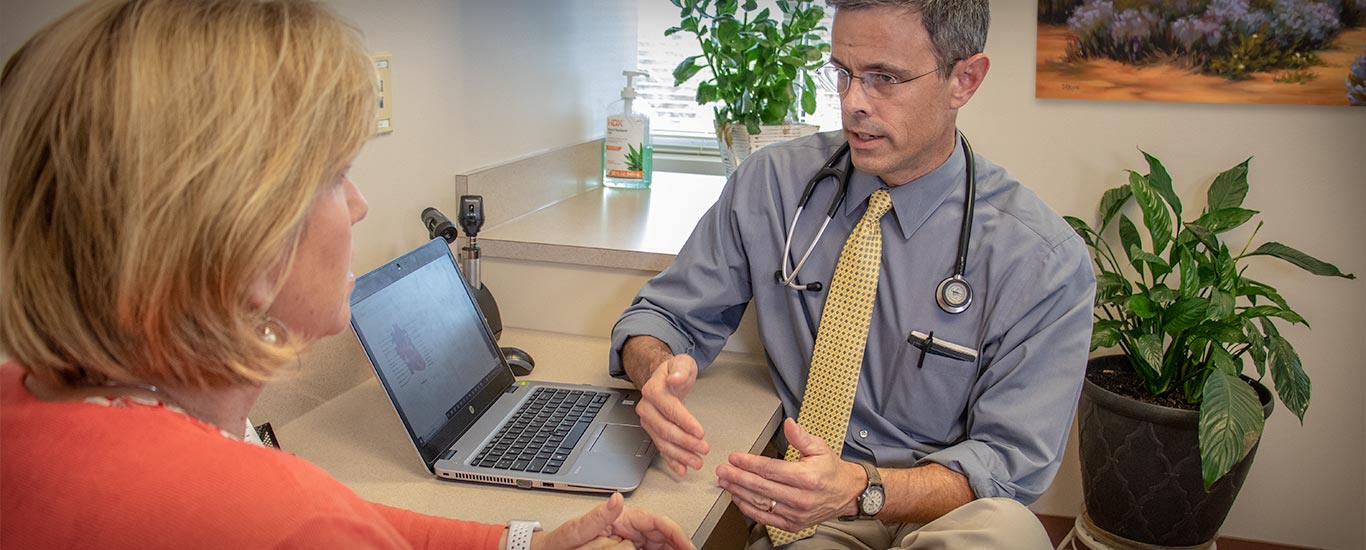
Pneumonia
According to the Center for Disease Control, approximately one million people are hospitalized every year due to pneumonia. Pneumonia is a common lung infection that is often a complication of another respiratory illness, such as the flu. Bacteria, viruses, and even fungi can all cause pneumonia.
The infection inflames the air sacs in one or both of your lungs and may also fill them with fluid or pus, which can make it difficult to breathe and cause a deep cough with phlegm. The seriousness of the infection ranges from mild to life threatening. It’s most serious for infants, older adults, and people with weakened immune systems.
If you suspect you may have contracted pneumonia, contact a primary care doctor in Raleigh that offers concierge medicine right away.
Types of Pneumonia
Bacterial
Caused most commonly by the bacteria Streptococcus pneumoniae, this type of pneumonia can develop on its own or on the heels of another respiratory illness like a viral chest cold. Common symptoms of bacterial pneumonia can include coughing, a high fever, difficulty breathing, and sometimes chest pain at the site of the pneumonia.
Viral
Initially viral pneumonia presents much like influenza (the flu) with a cough, fever, headache, muscle pain and weakness. However, as the infection develops and the lung tissue becomes inflamed you may become increasingly breathless and experience heavy coughing that produces mucus. Symptoms may also include a high fever.
“Walking Pneumonia”
Walking pneumonia is an informal name describing a less-severe case of pneumonia. The infection involves the air sacs in the lung tissue but the symptoms of fevers, shortness of breath, and fatigue are mild enough that the affected person is still able to carry out their daily activities. The sick person is up and “walking” rather than sick in bed. Often the microorganism causing walking pneumonia is different from those causing more severe pneumonia. Mycoplasma pneumoniae and Chlamydophila pnuemoniae are examples.
Symptoms
Common symptoms include:
- chest pain when breathing or coughing
- disorientation (especially in older adults)
- cough, which may or may not produce phlegm
- fatigue
- fever
- sweating
- chills
- nausea, vomiting or diarrhea
- shortness of breath
Diagnosis
A physical exam is the first step in determining the presence of pneumonia. If your direct primary care doctor in Raleigh suspects that you have pneumonia, they may order chest x-rays. They may also order blood tests.
Viral and bacterial pneumonia infections require different medications, so this is an essential step before treatment can begin. Your doctor can also choose to perform a pulse oximetry test. Oximetry tests measure how much oxygen your blood is carrying and whether your infection is affecting those levels.
Treatment
Bacterial pneumonia can be treated with antibiotics along with fluids and plenty of rest. The prescribed antibiotic depends on the type of pneumonia you are fighting and how severe the infection is. Sometimes it is necessary to switch antibiotics throughout the course of treatment, especially if you don’t experience any relief or if the symptoms get worse.
Viral pneumonia does not respond to antibiotics. To treat it, an experienced primary care doctor might recommend drugs commonly used to treat influenza (the flu). Viral pneumonia may also predispose you to develop bacterial infections, so you may need to take antibiotics to treat bacterial infection too.
In most cases, your direct primary care doctor will prescribe plenty of fluids, rest and sometimes an over-the-counter medication, such as acetaminophen or ibuprofen, to help control the fever. Cough-suppressing medications can help you breathe easier and rest better. Inhalers, vaporizers, and humidifiers may also help alleviate bronchial issues. These can help warm and moisten the air, which can reduce coughing and make breathing easier.
Complications
Left untreated, pneumonia can lead to serious complications, especially in infants and older adults. Those suffering from a compromised or weakened immune system are also at a greater risk for complications.
A common complication is pleurisy, a painful inflammation of the lining between the lungs and the inside of the chest wall. Pneumonia can also cause fluid accumulation between the lungs and chest wall. Less commonly, bacteria can enter the bloodstream from the lungs, or you can develop a lung abscess.
Prevention
Contracting pneumonia can be prevented with a few healthy tips.
- Get vaccinated. While the older pneumonia vaccine Pneumovax can reduce some of the complications of pneumonia, the newer vaccine Prevnar can reduce the chance of developing pneumonia at all. Influenza vaccination (the “flu shot”) can reduce the chance of pneumonia.
- Wash your hands frequently. If hand washing is unavailable consider use an alcohol-based hand sanitizer on the go.
- Quit smoking. Smoking damages your lungs’ natural defenses against the causes of pneumonia.
- Pursue wellness. Get enough sleep, exercise regularly and eat a balanced diet to keep your immune system in tip-top shape.
Let Us Keep Watch Over Your Health
Pneumonia can be a serious infection that can lead to various complications if left untreated. If you suspect that you may have pneumonia it’s important to schedule a visit with us right away. At Sentinel Primary Care, we are committed to providing top-notch primary care in Raleigh and keeping watch over your health.


